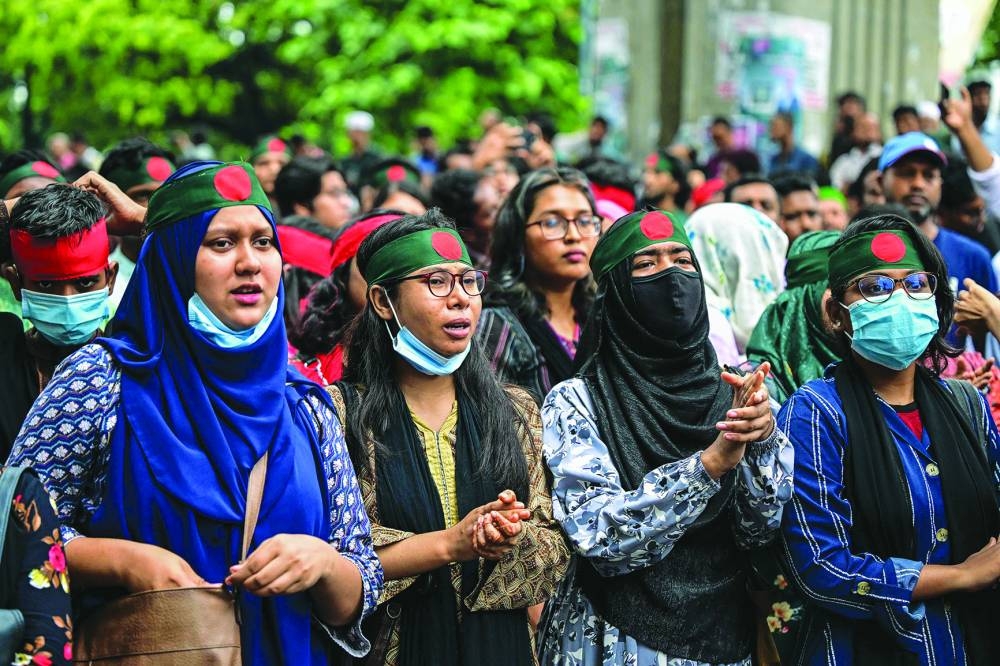Demonstrations in Bangladesh on Friday demanded justice for victims of nationwide unrest and police crackdown, after the release of protest leaders failed to quell public anger.
Student rallies against civil service job quotas sparked days of mayhem that killed at least 206 people last month, according to a count of police and hospital data.
The violence was some of the worst of Prime Minister Sheikh Hasina’s 15-year tenure, and the actions of her government’s security forces provoked widespread rancour at home and international criticism abroad.
A day after police freed six top members of the group which organised the initial protests, its leaders urged their compatriots to once again return to the streets.
“We want justice for the murders of our sisters and brothers,” Students Against Discrimination said in a statement. Thousands of young men in the capital Dhaka and the port city of Chittagong heeded the call defying torrential monsoon rains. “Why are our brothers in graves and the killers outside?” one crowd chanted outside the country’s largest mosque in central Dhaka, a teeming megacity of 20mn people. Students Against Discrimination had demanded the release of its detained leaders, three of whom were forcibly checked out of a hospital and taken away by plainclothes police last week.
Their release was a sign the government was hoping to “de-escalate tensions” with protesters, University of Oslo researcher Mubashar Hasan said.
But other demands by the students remain unmet, including a public apology from Hasina for the violence and the dismissal of several of her ministers.
They have also insisted that the government reopen schools and universities around the country, all of which were shuttered at the height of the unrest.
Many protesters have gone further, demanding Hasina step down altogether. “She must go,” writer and activist Arup Rahee said from a rally in the capital. “There will be no justice for the student murders if she remains in power.”
Internet outage monitor Netblocks reported that service providers had again restricted access to Facebook, WhatsApp and Telegram, all used last month to organise protests.
“We were instructed by the authorities to block Facebook,” said an official from one phone company, speaking on condition of anonymity.
Hasina, 76, has ruled Bangladesh since 2009 and won her fourth consecutive election in January after a vote without genuine opposition.
Her government is accused by rights groups of misusing state institutions to entrench its hold on power and stamp out dissent, including the extrajudicial killing of opposition activists.

